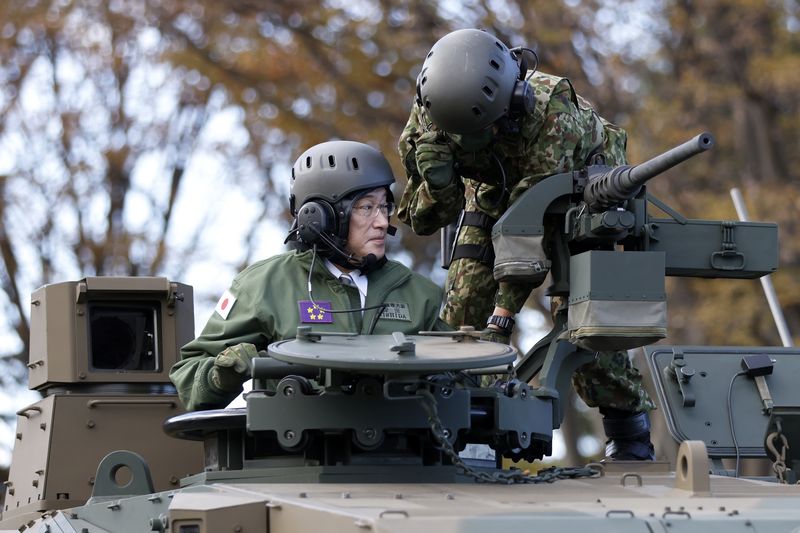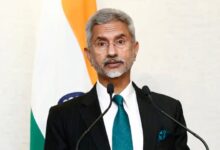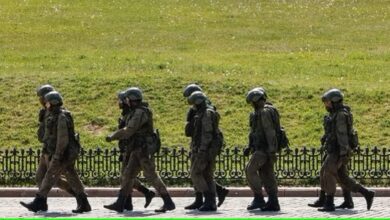Japan Set To Become One Of World’s Biggest Defence Spenders

- According to Aurelia George Mulgan, a professor at the University of New South Wales who specialises in Japanese politics and regional security
- According to the Ministry of Defense, an officer level university graduate who joins the forces receives a salary of approximately 3.6 million yen ($26,400) in their first year, increasing to 6 million yen by the time they turn 40.
As one of the top military spenders in the world, Japan is about to accept what may be the largest rise in defence spending since the end of the war.
The ruling party of Prime Minister Fumio Kishida plans to request a budget for the defence ministry for fiscal 2023 that is due by the end of August. This year’s spending, which was 5.4 trillion yen ($39.5 billion), will be doubled over five years. According to data from the Stockholm International Peace Research Institute, or SIPRI, which tracks defence spending, expenditures of that size might move Japan from ninth in the world for military spending to a likely third slot behind the US and China.
The invasion of Ukraine by Russia, China’s provocations toward Taiwan, and North Korea’s nuclear weapons have alarmed Japanese citizens and strengthened their support for increased spending. According to the World Bank, the three nuclear-armed nations that border Japan also have three of the biggest militaries in the world, with a combined 5.5 million personnel.
The Self-defence Forces, Japan’s military, are made up of about 231,000 people.
Japan is under pressure to spend more money on less obvious things like salary raises, ammunition, spare parts, and logistics in addition to simply purchasing physical equipment.
The majority of people probably believe that doubling the defence budget will result in the acquisition of significantly more equipment, according to former vice-admiral Toshiyuki Ito, who is now a professor at the Kanazawa Institute of Technology. But it’s not just a matter of stockpiling more things,
Ballistic missiles fired by China during military exercises over Taiwan this month that fell close to Japan’s southern islands have served as a reminder of the issues at hand. According to Kishida, Taiwan is on the front lines of the conflict between China and the US, and any untoward events in the Taiwan Strait will have severe repercussions for Japan.
Due to its pacifist constitution, Japan has historically maintained its defence spending to less than 1% of its GDP, relying instead on the US “nuclear umbrella” to support its own capabilities. However, in an uncommon move, the Mainichi newspaper and other media have stated that no cap will be set on expenditure demands at this time.
According to Kyodo News, the defence ministry’s initial request for fiscal 2023 would represent a relatively small increase to 5.5 trillion yen ($40.2 billion), but the actual amount is anticipated to increase once the undetermined costs for approximately 100 items are finalised.
With a pacifist constitution, Japan has always relied on the US “nuclear umbrella” to support its own capabilities, keeping its defence spending at around 1% of its GDP. However, in an uncommon move, according to the Mainichi newspaper and other media, there won’t be a ceiling set on expenditure requests at this time.
According to Kyodo News, the defence ministry’s initial request for fiscal 2023 would represent a relatively small increase to 5.5 trillion yen ($40.2 billion), but the ultimate amount is anticipated to increase once the finalised costs for approximately 100 products are determined.
The ministry is looking at new hardware that includes improved missiles and radar systems that could intercept rockets from China and North Korea — including hypersonic systems — and introducing unmanned aerial combat drones, the Yomiuri said. Japan plans to reach an arsenal of about 1,000 missiles that can be fired from ships and planes and reach into North Korea and China, the paper said.
There will be a budget for co-developing a next-generation fighter jet with the UK, the Yomiuri reported.
Despite his career in the maritime division of SDF, Ito doesn’t see a need for more warships. Tokyo must improve pay for its troops or it would struggle to find enough pilots even if it expanded its fleet of fighter jets, he added.
If there’s more cash, Ito advocates spending on nontraditional items such as recruiting “white hat” hackers to help protect power networks.
Despite his tenure in the SDF’s maritime branch, Ito doesn’t believe that more warships are necessary. He continued by saying that even if Tokyo increased the salary for its soldiers, it would still have trouble finding pilots.
If there is extra money, Ito advises investing in unconventional stuff like hiring “white hat” hackers to assist safeguard electricity networks.
The SDF of Japan has around 16,000 fewer members than was planned for in the budget. According to analysts, that shortage is partly caused by a lack of age-appropriate candidates in the nation with the oldest population in the world as well as a frugal approach toward compensation.
According to Alessio Patalano, professor of war & strategy in East Asia at Kings College London, existing SDF pay and support is “simply not acceptable,” and “people management and the entire well-being of the Japanese military troops should take centre stage.”
According to the Ministry of Defense, an officer level university graduate who joins the forces receives a salary of approximately 3.6 million yen ($26,400) in their first year, increasing to 6 million yen by the time they turn 40. Allowances for hazardous assignments may be added to this. After four years of experience, a US army officer’s annual salary is anticipated to reach around $62,000.
According to Corey Wallace, an assistant professor at Kanagawa University in Yokohama, Japan should increase its inventories of gasoline, components, and ammunition to answer worries that it may not have the stamina to survive if a fight breaks out.
After the late Prime Minister Shinzo Abe, who took office in 2012, launched a policy U-turn, Japan has been steadily raising its defence spending over the past ten years.
Following the start of the war in Ukraine, plans for a hike have received favourable feedback in polls, with over 50% of respondents to a June survey by Jiji Press supporting an increase. However, most people objected to the most indebted nation in the world tripling its budget.
According to Aurelia George Mulgan, a professor at the University of New South Wales who specialises in Japanese politics and regional security, this disagreement about the scope of the shift could lead to a political stalemate. She foresees a “potential conflict down the line” between hawks in the ruling Liberal Democratic Party and Kishida and his new defence minister Yasukazu Hamada, who may try to keep expenditure in check.
Some caution that strengthening defences may not have the impact Japan is hoping for unless it is coupled with the appropriate diplomatic and economic strategy.
According to Naoko Aoki, senior fellow at the Atlantic Council’s Asia Security Initiative and a nonresident, “Japan cannot make itself more secure solely by raising its defence spending.” “Increasing Japan’s defence capabilities might make the other countries in the region feel threatened, prompting them to respond in kind and leaving no one better off than before.”







Facebook Comments